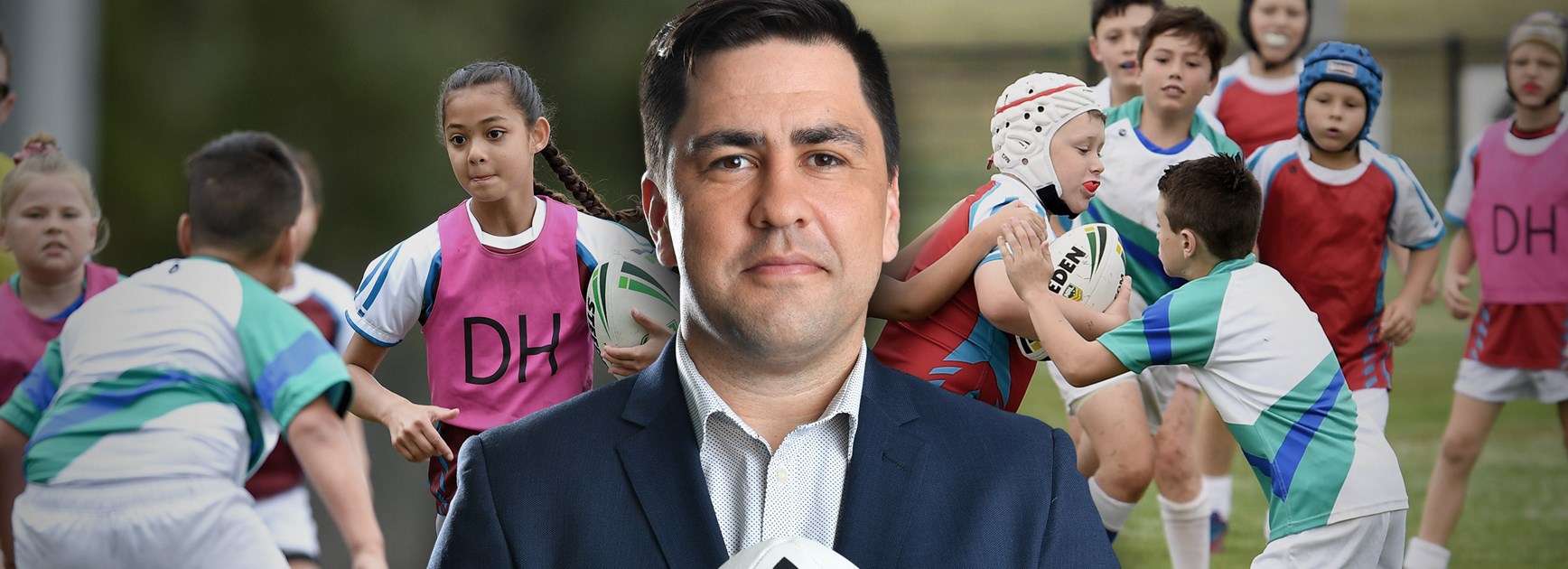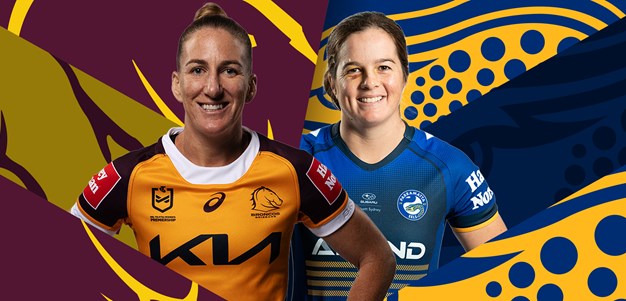
While some junior rugby league players undoubtedly feel the pressure to succeed from overbearing coaches or parents, I don't believe taking away competition points until under-13s will end that problem.
But that's where our game is headed as it looks for ways to keep kids playing our sport for longer by improving their enjoyment, personal development and performance.
New junior models – including "development competitions" with no finals series, TackleReady programs that prepare kids to enter into tackle competitions at under-eights, and weight-related grouping options – were trialled last year in the QRL's south-east Queensland division plus the NRL Victoria and Toowoomba JRL competitions.
Based on the findings from those trials, research into other successful junior sport set-ups around the world and studies from professors, the ARL Commission endorsed the implementation of the aforementioned changes under a new framework in a meeting last December.
The QRL and the affiliated states – NRL NT, NRL Victoria, NRL WA and NRL SA – have endorsed the framework with the rollout to begin this year. The NSWRL has yet to follow suit.
Inside the new League Stars program
I spoke at length with NRL participation strategy, education and projects senior manager James Hinchey about the changes last week. And while it's great that the game is being proactive in trying to retain juniors, I think they're going the wrong way about it.
I definitely disagree with the scrapping of finals until the age of 12. Kids want to play for something – listen to any school playground at lunchtime or backyard footy match and you're bound to hear the famous call of "next try wins".
Last weekend I went to the NSW Touch Junior State Cup in Wagga Wagga, helping to mentor the under-12s Wagga Wagga team that my best mate was coaching. Our team won and lost games. Kids were crying but 10 minutes later they were running off to get an ice cream.
Those winning and losing moments shouldn't be taken away. They build character. There's nothing like getting together for a carnival – kids are rewarded for competing hard or they lose and gain the incentive to improve.
And if someone doesn't know what it's like to fall short, how else do they become motivated to reach their potential?
Had there not been championships at stake, I doubt many of the players who travelled far and wide for the Junior State Cup would have made the trip – and that would have been a real shame. Some of my best memories as a kid are going on team bus trips to play at different carnivals.
Pretty much every first-world society is facing the same challenges when it comes to youth sport
NRL official James Hinchey
The NRL argue that every match in a development competition will still be a contest and every try will still be worth four points. But I feel it's just not the same without having actual points on the line.
Hinchey's view is that despite everyone wanting to do what they think is best for young players, the continuation of playing to reach finals and win premierships at junior levels will result in more youngsters walking away from the game.
"Despite the best of intentions, a hyper-competitive environment, that's seeing 10,000 kids a year depart the sport, is the main reason being nominated as the reason why they're leaving," Hinchey said.
It's the minority of parents and coaches with toxic "win at all costs" mentalities who often strip away the enjoyment for kids.
Those adults, who want nothing more than to see their children or players excel at sport, won't disappear just because there's no trophy on the line at season's end. They'll constantly push the player to be the best no matter the circumstances.
NRL and NRLW players visit Lightning Ridge
To me, that's a societal issue; not a rugby league issue. I think America has a far bigger problem with parents living vicariously through their kids and desperately wanting them to become sports stars.
Hinchey's view is that the problem faced by the NRL is just as bad as the rest of the developed world.
"Outside of places like Norway who have Children's Rights in Sports legislation, pretty much every first-world society is facing the same challenges when it comes to youth sport, we are no 'better' or 'worse' than the US," Hinchey said.
Currently, around 40,000 junior players between six and 18 quit rugby league each year, with 10,000 of those kids citing a negative experience as the reason. An overemphasis on winning, leading to kids feeling undervalued or as though there is a lack of fairness in team selections, is clearly a problem.
So how do we combat those overly-intense coaches and parents? For the coaching side, my idea is that instead of doing a level one or two coaching certificate, every coach in the introductory ages is made to follow the same training program.
We could split training up into four blocks over the season. One training session could be on tackling, one on passing – even a session on how to handle defeat. A mandatory coaching program like this would also be a great chance for the NRL to incorporate mental health aspects at a young age.
I definitely disagree with the scrapping of finals until the age of 12
Jamie Soward
In an ideal world, we'd get all the top junior coaches, administrators, mental health experts and so on and ask them what works best to design a blanket introductory coaching program. It seems like a far better option than playing for no points and it limits the negative influence coaches and parents can have.
To the NRL's credit, they have overhauled their coach development programs, with coaches needing to complete online modules on a range of topics promoting safety, inclusivity and fun, as well as a three-hour face-to-face module, before they can coach a team.
And a parent induction program is being developed in conjunction with the University of Queensland which will be trialled in south-east Queensland this season with a view to wider implementation in 2021.
I think that's an awesome idea. I understand some parents are busy, but making mums and dads complete an online module at the least should drive home the behavioural standards that need to be met. Maybe parents should be required to get accreditation to attend games?
At the end of the day, it's usually the adults who create negative experiences in junior sport and we should be focusing on pulling them into line. Just don't rob the kids of the lessons that come with real wins and losses.
The views in this article do not necessarily express the opinions of the NRL, ARLC, NRL clubs or state associations.



